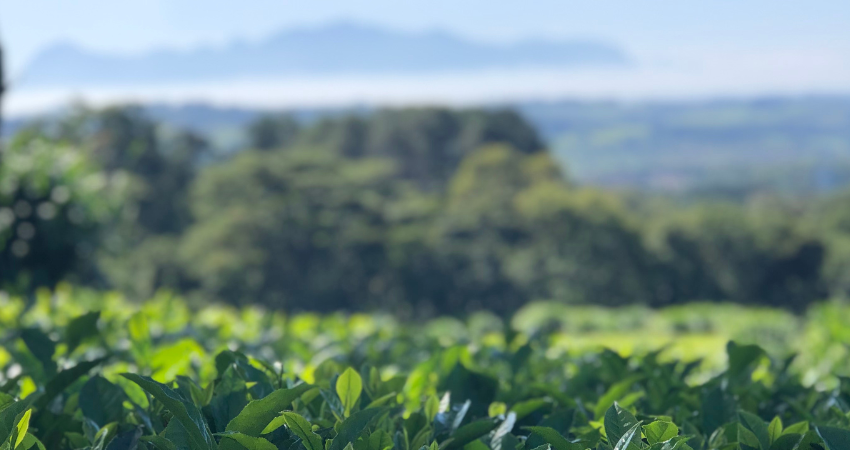
What Is Specialty Tea?
Welcome to the world of specialty tea
Welcome to the world of specialty tea, where the leaves tell stories of unique flavors, rich traditions, and exquisite craftsmanship. Specialty tea goes beyond the ordinary cuppa, offering a sensory journey that delights tea enthusiasts worldwide. Unlike mass-produced teas, specialty tea is cultivated with care, harvested at precise moments, and processed with expertise to preserve its distinct characteristics. From delicate white teas to robust oolongs and complex pu-erhs, each cup of specialty tea embodies a legacy of terroir and technique. Discover the art of brewing premium leaves that unlock a symphony of aromas and tastes, inviting you to savor every sip. Whether you are a seasoned connoisseur or a curious novice, specialty tea invites you to explore a world of unparalleled quality and diversity. Join us on a voyage through the enchanting realms of specialty tea, where every infusion offers a glimpse into centuries-old traditions and modern innovation.
Distinguishing Specialty Tea from Commodity Tea
Quality Standards of Specialty Tea
Specialty teas are renowned for their exceptional quality standards, setting them apart from commodity teas. These teas are meticulously produced in limited quantities to ensure utmost quality. The stringent quality control measures implemented during the production process guarantee that only the finest tea leaves are carefully selected and processed. This attention to detail not only maintains the high quality of specialty teas but also preserves their unique and exquisite flavors. In contrast, commodity teas, being mass-produced, often lack the same level of quality assurance, resulting in a more standardized taste and appearance.
Traditional Production Methods of Specialty Tea
The production of specialty teas involves intricate traditional methods that have been honed and perfected over centuries. Crafted with precision and care, specialty teas are often hand-processed using techniques like hand-rolling tea leaves or allowing for specific levels of oxidation to enhance the desired flavors. These age-old methods contribute to the complexity and richness of specialty teas, making each brew a unique experience. Conversely, commodity teas are predominantly processed using mechanized methods to streamline production and reduce costs. While this approach may enhance efficiency, it comes at the expense of the nuanced flavors and characteristics that define specialty teas.
Sustainability and Ethical Practices
Another crucial aspect that distinguishes specialty teas from commodity teas is their emphasis on sustainability and ethical practices. Specialty tea producers often prioritize environmentally friendly cultivation methods, such as organic farming practices and fair trade agreements. By supporting sustainable tea production, consumers of specialty teas contribute to the preservation of ecosystems and the well-being of tea workers. In contrast, commodity teas, due to their mass production nature, may not always adhere to the same level of environmental and ethical standards.
Health Benefits of Specialty Tea
Beyond quality and production methods, specialty teas also offer a range of health benefits that further differentiate them from commodity teas. Many specialty teas are rich in antioxidants, vitamins, and minerals that promote overall well-being. For instance, green tea is known for its potential to boost metabolism and support weight management, while herbal teas like chamomile can aid in relaxation and improve sleep quality. These health-promoting properties make specialty teas not only a flavorful beverage choice but also a valuable addition to a healthy lifestyle.
Cultural Significance and Rituals
Specialty teas often hold significant cultural value and are associated with unique brewing rituals that add a sense of ceremony to the tea-drinking experience. In various cultures around the world, the preparation and serving of specialty teas are steeped in tradition, symbolizing hospitality, respect, and mindfulness. For example, the Japanese tea ceremony, known as Chanoyu, is a highly ritualistic practice that emphasizes harmony, respect, purity, and tranquility. By embracing specialty teas and their cultural heritage, tea enthusiasts can partake in these meaningful traditions and deepen their appreciation for the art of tea.
The disparities between specialty tea and commodity tea extend beyond quality and production methods to encompass values of sustainability, ethics, health benefits, and cultural significance. Choosing specialty tea not only guarantees a superior tea-drinking experience but also aligns with principles of responsible consumption, support for traditional tea craftsmanship, and holistic well-being.
The Impact of the European Specialty Tea Association
The European Specialty Tea Association (ESTA) has significantly influenced the sourcing practices within the specialty tea industry. With a focus on transparency and traceability, businesses are now establishing direct relationships with tea producers and implementing stringent quality control measures to meet the demands of discerning consumers.
Moreover, sustainability has become a central theme in the operations of tea industry players under the guidance of ESTA. Embracing environmentally friendly cultivation methods and ethical sourcing practices, companies are aligning their strategies with the increasing consumer preference for eco-conscious and socially responsible products.
The introduction of ESTA has also prompted a reevaluation of traditional distribution channels in the specialty tea sector. By leveraging technological advancements, businesses are optimizing their distribution networks, exploring new market opportunities, and enhancing global consumer reach. This embrace of innovation positions tea industry stakeholders to take advantage of the changing landscape of international trade and consumer trends.
Conclusion
Specialty tea encompasses a wide range of high-quality teas that are produced with utmost care and attention to detail. From rare and unique flavors to teas sourced from specific regions, specialty tea offers a diverse and indulgent experience for tea enthusiasts. Embracing the art of tea-making and exploring the myriad of flavors can truly elevate the tea-drinking experience to a whole new level.Specialty tea goes beyond the ordinary cuppa, offering a sensory journey that delights tea enthusiasts worldwide. Associations that specifically focus on the quality and sourcing of tea like ESTA are helping grow awareness and appreciation for specialty tea.
